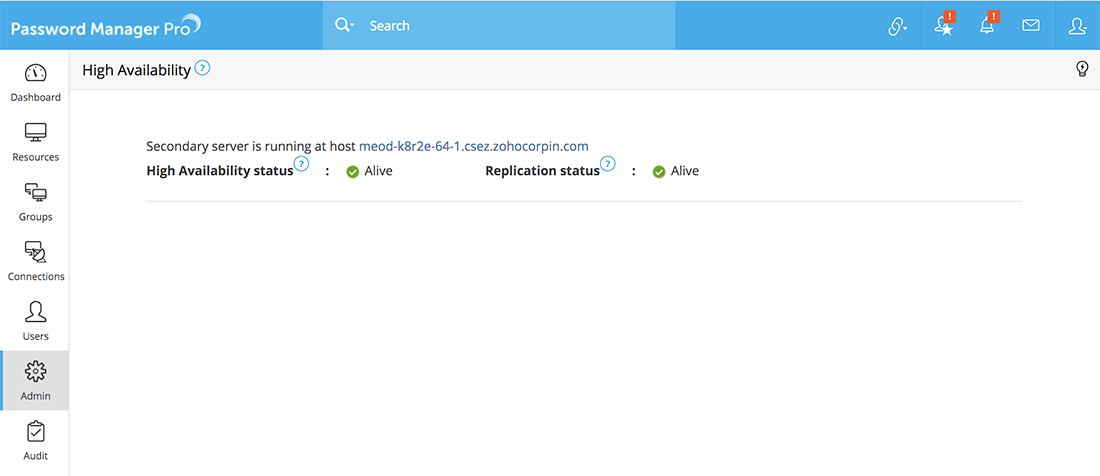Password Manager Pro's high availability mechanisms assure continuity in password-related operations with data redundancy. You get uninterrupted access to the passwords stored in Password Manager Pro's database, so you don't have to worry about downtime harming your business.
Password Manager Pro's high availability architecture functions with redundant servers, meaning one server acts as the primary and the other acts as the secondary. All users will be connected to the primary server. If the primary server goes down, the secondary server will offer emergency access until the primary server is up and running again. Data on both the primary and secondary servers is always in sync, and is replicated between the servers through a secure, encrypted channel. When the primary server recovers from downtime, any database changes that occurred when the primary server was down will also automatically synchronize.
The primary and secondary servers can be installed in different geographic locations, even across continents, as long as they have a direct TCP connection with latency that is strong enough for database replication. For managed systems that are in a DMZ, or in network segments that the server cannot reach, you can install agents in the systems to reach the server over HTTPS.
For Password Manager Pro installations with an MS SQL server as the back-end database, you can activate automatic failover with SQL server clustering. This clustering means that two Password Manager Pro server instances can work together to maintain service availability and continuous access to business-critical passwords. The redundant instances are tied to a common MS SQL cluster that, in turn, has multiple Password Manager Pro database instances bound to it.
